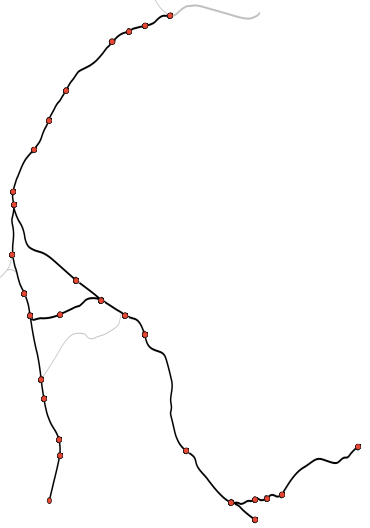Mossgiel Tunnel Platform | |||||
|---|---|---|---|---|---|
 Mossgiel Tunnel north portal, site of the old station and the mineral siding to Mauchline Colliery. | |||||
| General information | |||||
| Location | Near Mauchline, Ayrshire Scotland | ||||
| Coordinates | 55°31′58″N4°24′32″W / 55.5329°N 4.4089°W | ||||
| Grid reference | NS2142 | ||||
| Platforms | 1 | ||||
| Other information | |||||
| Status | Disused | ||||
| History | |||||
| Pre-grouping | G&SWR | ||||
| Post-grouping | LMS | ||||
| Key dates | |||||
| After 1896 | Opened | ||||
| After July 1926 [1] | Closed | ||||
| |||||
Mossgiel Tunnel Platform railway station (NS480292) was not a station constructed for public use. [1] It stood close to the northern portal of the 680 yard Mossgiel Tunnel that runs under the Mossgiel Ridge and Skeoch Hill north of Mauchline, East Ayrshire, Scotland. It may have solely served the transportation requirements of the Glasgow and South-Western Railway and its successor in connection with the carriage of workers involved in the ongoing maintenance and/or the major reconstruction of Mossgiel Tunnel that took place between 1925 and 1927. [2] It was not recorded in the 1896 G&SWR working time table [3] and had closed sometime after July 1926. [1]
Contents
Garrochburn Goods Depot once stood near by on the B744 to the north, 6.82 from Kilmarnock and 2.72 from Mauchline. [4] A line to Mauchline Colliery branched off close to the site of the station that opened in 1925 and closed to all traffic in February 1974 after serving as a coal washery for around 5 years after the colliery closed in 1969. [5] [6]


